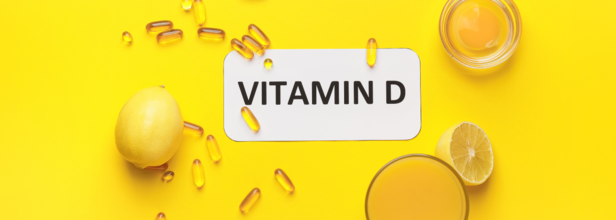
Image Credit: Canva
Most People Overlook These 4 Essential Times to Drink Water Every Day
Did you know the timing of when you drink water is as important as the amount of water consumed? While many individuals are busy making sure they reach their daily quota, not many are aware that consuming water at certain times will get the best out of it. Whether boosting your metabolism first thing in the morning or aiding digestion prior to meals, water helps to keep your body in top condition. Curious when you need to be drinking this life-sustaining potion?
Hydration is basic to overall well-being, but many pay more attention to the amount of water they consume than to when they consume it. All cells, tissues, and organs in the body need water to work correctly. Hydration affects digestion, cardiovascular health, brain function, and even spinal health. Yet, drinking water in the most effective way possible is as essential as drinking enough of it. Rather than swallowing several glasses at one time, distributing water consumption strategically throughout the day can yield the greatest rewards.
Based on National Academies of Sciences, Engineering, and Medicine hydration recommendations, men need a minimum of 13 (8 oz) cups of fluid every day, while women need at least 9 (8 oz) cups or more. Yet these amounts vary depending on the level of activity, climate, and personal health status. To tap into the full potential of hydration, let's discuss four critical times to consume water that most people unknowingly neglect.
1. After Waking Up
Your body dehydrates while you are asleep, making you slightly dehydrated in the morning. Drinking water when you wake up in the morning rehydrates your body, cleanses you of toxins, and gets your metabolism going. It also gets internal organs to work, activating them for the day. Hydration in the morning has been proven to increase brain function, which enhances memory and concentration. Rather than for coffee, use your hand to stretch for lukewarm lemon water to awaken digestion and trigger detoxification.
2. Pre-meal
Having a glass of water approximately 30 minutes prior to eating can help digestion by conditioning the stomach to digest food better. Adequate hydration assists the body in secreting digestive juices and enzymes required to digest nutrients. Nevertheless, do not drink excessive water close to or immediately after meals, as it could weaken gastric acids and slow down digestion. Instead, drink water at least an hour after meals to facilitate nutrient absorption and avoid bloating.
3. Before a Bath
Interestingly enough, having a glass of water before a bath can have heart benefits. Exposing the body to warm water in a bath or shower may slightly reduce blood pressure by causing blood vessels to dilate. Pre-hydration ensures there is good circulation and avoids dizziness or dramatic drops in blood pressure. Such a simple habit can be quite useful for hypertensive patients or those who are prone to becoming dizzy after scalding showers.
4. Before Sleep
Hydration does not end at bedtime. Drinking too much water just before sleeping might cause you to wake up during the night, but a minimal glass of water an hour or so before sleeping helps maintain hydration and aids in overnight body functions. This is particularly significant for those who suffer from dry mouth, night sweats, or leg cramps. Dehydration during nighttime can also be prevented through good nighttime hydration that aids in muscle repair and improves the body's ability to regulate temperature while sleeping.
How to Develop a Routine of Drinking Water Consistently?
It can be difficult to drink enough water every day, but having a systematic routine simplifies the task. The following are some expert-recommended tips to ensure that you remain hydrated consistently:
Stick to a Water Routine
If you find it hard to drink sufficient water, a basic routine can work:
Early morning – A glass of water in the morning before breakfast is the first step towards staying hydrated.
After meals – An hour after meals, drinking water aids in digestion.
Mid-afternoon – When you feel your energy flagging, drink water rather than relying on caffeine.
Before bed – A small glass or sip before bedtime keeps you hydrated.
Whenever you sweat – Drink before and after exercising, being out in the heat, or other activities that cause you to sweat.
Use a Water Bottle for Easy Tracking
Rather than measuring the number of cups, monitor your consumption by fixing a target using the number of bottles you need to consume in a day. For example, refilling a 500 ml bottle four times will provide a good amount of water.
Make Water More Palatable
Plain water is monotonous to many, so try alternatives to make it tastier:
- Include wedges of citrus fruits like lemon or orange.
- Use infused water with cucumber, mint, or berries.
- Choose room temperature or cold water depending on your preference.
- Use filtered water if tap water tastes unpleasant.
Maintain a Visual Reminder
Having a glass of water beside your bed or on your workspace acts as a constant reminder to drink. Small environmental modifications can support hydration habits easily.
One of the easiest yet most potent things you can do for your health is to drink water. Although it's important to prioritize the overall intake of water taken in a day, the when and not the how much makes a big difference in getting the most out of it.

Credits: Canva
Why Do The Japanese Drink Vinegar Before Their Meals?
Every culture has a particular thing that they do, a ritual that they ensure to practice throughout. It could be any ritual, an eating ritual, a drinking ritual, which becomes a habit. Most of the time they have benefits, but are unknown to people as they never question it. There is one such drinking ritual that the Japanese people follow. It is the habit of drinking vinegar before every meal.
But, why does this happen?
The Japanese people have made it a habit to drink vinegar as a health tonic. Not only do they use it as a cooking ingredient, but also as a tonic right before they sit down to consume meal. They believe that it can help them with everything in their body, including their glowing skin to digestion.
Let us find out if there is any truth to this?
Experts believe that drinking vinegar, especially if consumed before meals is a practice which can be seen in many cultures, and Japan is one of them. It has many health benefits.
Vinegar contain acetic acid that helps in increasing the production of digestive enzymes and stomach acid. This can also help break down food more effectively. There are studies too that show that acetic acid can improve insulin sensitivity and reduce blood sugar spikes that happens right after you consume your meal.
There are other benefits to drinking vinegar. It also helps to boost your metabolism and promote weight loss. Research also suggests that acetic acid can increase fat burning and reduce fat storage.
Experts also believe that vinegar can improve heart health. How does it do this? It can lower blood pressure, cholesterol levels and triglycerides.
How Much Vinegar Do The Japanese Drink?
On an average, a Japanese person drinks 15 to 30 ml, which is around 1 to 2 tablespoons of vinegar. They dilute it in water right before the meal.
What Do The Studies Say?
The US Department of Agriculture states that vinegars contain a substance called mother which has strands of proteins, enzymes, and friendly bacteria. These are mostly found in organic, unfiltered apple cider vinegar. They have a murky appearance.
As per the National Library of Medicine's research paper, titled Antimicrobial activity of apple cider vinegar against Escherichia coli, Staphylococcus aureus and Candida albicans; downregulating cytokine and microbial protein expression, vinegar can also help kill pathogens, including strains of bacteria.
People have also traditionally used vinegar for cleaning and disinfecting, treating nail fungus, lice, warts, and ear infections.
In fact, Hippocrates, the father of modern medicine, used vinegar to clean wounds more than 2,000 years ago.
A 2021 study Antibacterial apple cider vinegar eradicates methicillin resistant Staphylococcus aureus and resistant Escherichia coli, also reveals that vinegar can be used as a great food preservative, as it inhibits bacteria like E.coli from spoiling food. This is why in Japanese cuisine, vinegar is also used as cooking ingredient.
As per a 2019 clinical trial, titled The effect of apple vinegar consumption on glycemic indices, blood pressure, oxidative stress, and homocysteine in patients with type 2 diabetes and dyslipidemia: A randomized controlled clinical trial, vinegar consumption could have beneficial effects on the glycemic index and oxidative stress in individuals with diabetes and dyslipidemia. This could help lower blood sugar levels and manage diabetes.

Credits: Canva
What Role Does Vitamin D Play In Your Gut Health?
Vitamin D is known for its role for maintaining strong bones and teeth. However, its benefits can be extended beyond bone health and skeletal health. It is an essential nutrient that is involved in several bodily functions, including immune support, blood sugar regulation, and gut health.
A research conducted through the MetA-Bone Trial by the Washington Post, focused on how a dietary fiber supplement can impact bone mass in children and adolescents. It is in this process that the team uncovered a surprising connection between vitamin D and gut health.
How Was The Research Conducted?
The research examined 213 children and adolescents from South Florida, who were primarily Hispanic and Blacks. Their vitamin D levels were measured before they started taking the supplement. 68% of them had suboptimal vitamin D levels.
South Florida has abundant of sunshine around the year, the finding was unexpected, in fact, concerning. While vitamin D is present in some foods, most of it can be consumed through sunlight. In fact, most Americans rely on sunlight for their vitamin D intake. This deficiency is alarming for children and adolescents who are approaching their puberty, which is a period of rapid physiological change and includes bone mass development.
The Many Roles of Vitamin D
Vitamin D plays a crucial role in different bodily functions. Vitamin D receptors are present in several organs which serve as docking stations for the vitamin and allows it to exert its effects on the skin, intestines, bones, parathyroid gland, immune system and pancreas.
One of vitamin D’s primary functions is regulating calcium levels in the body. This regulation is essential not only for bone formation and maintenance but also for the proper functioning of the nervous system. Vitamin D also contributes to cell differentiation, the process by which cells become specialized to perform specific tasks. Additionally, it plays a role in insulin secretion, blood pressure regulation, muscle repair, immune function, and nutrient absorption.
How Can Vitamin D Support Your Gut Health?
Your gut system is home to many vitamin D receptors and so it can contribute to better calcium absorption and a stronger intestinal barrier.
It is this barrier that allows the intestines to absorb nutrients while keeping harmful bacteria and toxins out. It consists of intestinal cells re connected by proteins which are called the tight junctions. Vitamin D receptors also help produce these tight junctions and ensure the integrity of the gut lining.
Research indicates that a deficiency in vitamin D can weaken these receptors, reducing the strength of the intestinal barrier. A compromised barrier allows substances from the gut to enter the bloodstream, leading to inflammation. This breakdown has been associated with various health conditions, including liver disease, Type 1 diabetes, obesity, and gastrointestinal disorders such as celiac disease, inflammatory bowel disease, and colon cancer.
As part of our study, we also assessed the intestinal barrier strength of our participants and compared it with their vitamin D levels. Our findings revealed that children with suboptimal vitamin D levels had a higher risk of compromised gut health. Even among otherwise healthy children, low vitamin D levels could potentially increase the risk of chronic diseases at an early age.

Image Credits: Canva
Can Homeopathy Really Detox Your Body? Expert Weigh In
Detoxification is the body's natural cleansing process of eliminating dangerous toxins that have built up from environmental toxins, poor diets, and stress. It cleanses the blood, liver, and other organs involved in the process of waste elimination. While mainstream detoxing processes usually consist of rigid diets, fasting, or colon cleanses, homeopathy offers a softer and holistic means of stimulating the body's own cleansing processes.
The new lifestyle has contributed immensely to changed eating patterns, resulting in increased chronic conditions of obesity, diabetes, and heart diseases. Toxins penetrate the body in the form of processed foods, alcohol, pollution, and stress. They become part of the blood and lymphatic system, slowly accumulating in essential organs such as the liver, kidneys, and intestines. These toxins, if not efficiently eliminated, can result in fatigue, gastrointestinal discomfort, skin ailments, and compromised immunity.
The liver is the primary organ for detoxification. Through the process of metabolism, the Phase 1 detoxification of the liver (also referred to as the P450 enzyme system) creates free radicals, which can cause tissue damage if there are not adequate antioxidants within the body. This is why dietary or supplement replenishment of antioxidants is important in order to detoxify efficiently.
Can Homeopathy Naturally Detox?
As opposed to traditional detox routines that are hard on the body, homeopathy acts on the cellular level to complement the body's inherent capacity for detoxification. According to Dr. Manju Singh, Homeopathy expert, homeopathy does not cleanse but instead 'drains' toxins, and that it activates the body's defense mechanisms, allowing toxins to be removed effectively without an interruption in overall health.
Homeopathic Remedies for Detoxification
Nux Vomica: Perfect for detoxifying after binge drinking, caffeine, or fast foods. Alleviates bloating, nausea, and stomach discomfort.
Lycopodium: Facilitates liver function and eliminates digestive problems such as gas, bloating, and acidity.
Sulphur: Famous for purifying the skin, it clears acne, eczema, and rashes due to toxin accumulation.
Berberis Vulgaris: Maintains kidney health by facilitating the elimination of toxins through urine, keeping kidney-related diseases at bay.
Chelidonium Majus: Supports liver functioning, digestion, and fat digestion without any effort.
Why Lifestyle Plays an Important Role in Detoxification?
Though homeopathy is a strong supporter of detoxification, healthy lifestyle also plays a similar role. The inclusion of the following habits can make the body most effective in natural toxin removal:
1. Hydration
Adequate intake of water is essential to flush out toxins in the form of urine and sweat. Herbal teas and fresh juices can also aid in hydration and detoxification.
2. Nutrient-Dense Diet
A well-balanced diet that includes plenty of fruits, vegetables, whole grains, and fiber feeds the body while encouraging toxin elimination. Cutting down on processed foods, alcohol, and excessive caffeine consumption further aids detoxification.
3. Consistent Physical Exercise
Exercise increases blood circulation, strengthens digestion, and activates the lymphatic system, which helps remove toxins through sweat and breath.
4. Stress Control
Ongoing stress may lead to increased toxin accumulation in the body. Stress levels can be controlled through deep breathing techniques, meditation, and yoga, which further benefit overall health.
5. Reducing Chemical Exposure
Restricting exposure to environmental toxins, including air pollution, artificial cleaning agents, and pesticides, reduces the toxin load on the body.
Homeopathy may provide a holistic and natural means of detoxification, removing toxins from the body without harm while restoring equilibrium. A visit to a qualified homeopathic practitioner guarantees a personalized detox program suited to individual needs, making the process safe, effective, and sustainable.
Dr. Manju Singh, B.H.M.S., Homeopathy Consultant and senior homeopathic medical officer at SBL Global, India
© 2024 Bennett, Coleman & Company Limited

